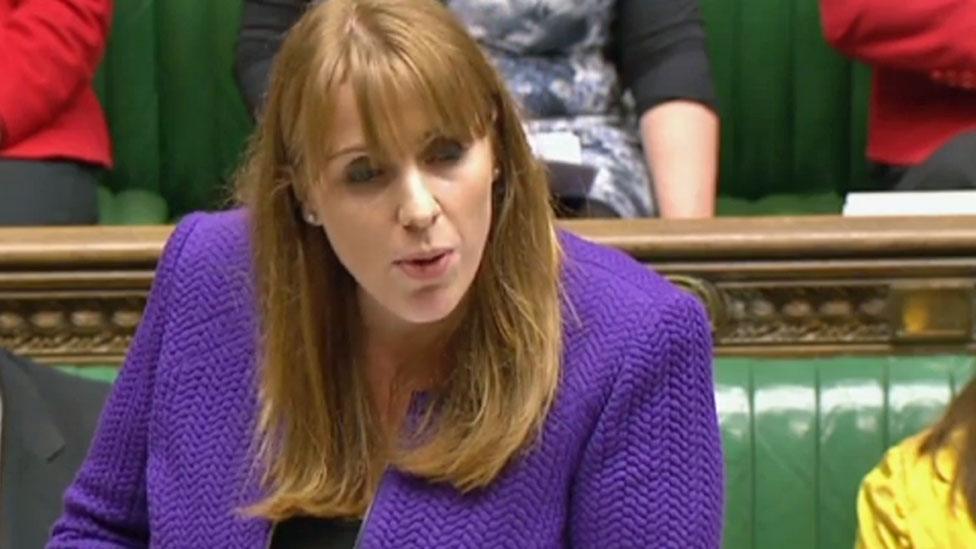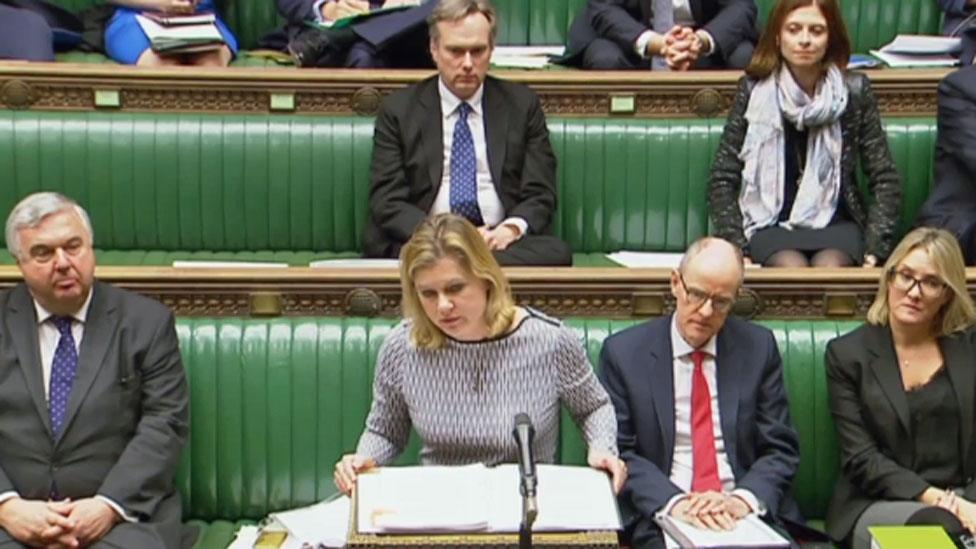School funding 'crisis' warning
- Published

School leaders have been complaining about worsening budget shortages
"Make no mistake, this is a crisis," said Labour's Angela Rayner, as MPs debated warnings that schools in England faced deep funding problems.
The shadow education secretary accused the government of failing in its pledge to protect school spending.
There were also calls from Conservative MPs for a re-think on proposed changes to funding.
But Education Secretary Justine Greening said schools were already receiving record levels of funding.
She told MPs that she accepted there were "cost pressures" but that schools had "significant scope for efficiencies".
But Ms Rayner called on the education secretary to tell schools how they should reduce spending.

Angela Rayner accused the government of failing to protect funding for pupils
"So what is your plan? Do you want schools to cut subjects, increase class sizes or make parents foot the bill?" she asked.
Labour MP Andrew Slaughter accused the education secretary of showing an "extraordinary degree of complacency".
Opposition MPs highlighted a National Audit Office report that schools faced £3bn in spending cuts and a forecast from the Institute for Fiscal Studies of an 8% real-term cut.
Ms Greening also faced some tough questions from her own backbenches.
They focused on the proposed National Funding Formula, which will overhaul how school spending is allocated, with calls for a "radical" re-think in how it should be calculated.
The new funding formula is intended to resolve longstanding anomalies in levels of funding.

Justine Greening says historic funding anomalies had to be resolved
"We know that parents and families see this unfairness playing out and it is simply untenable, I believe, to now stand up and say that these historical imbalances and differences in how we are funding our children across the country are ones that we should accept," said Ms Greening.
She said funding levels needed to keep up with changing needs - and gentrification in London meant that the number of pupils eligible for free meals had reduced.
But she heard dissatisfaction with the outcomes from a series of Conservative MPs, who had expected their local schools to receive a higher level of funding.
They called for changes to the plans, which are still under consultation.
And there warnings from the Tory backbenches that the current plans would mean teacher job cuts or even the closure of schools.
Neil Carmichael, who chairs of the Education Select Committee, suggested there needed to be a mechanism for a more substantial increase for schools in areas that had a long problem with underfunding.
But there were other Tory MPs who supported the revised funding levels.
Michael Tomlinson said the current allocations had no consistency or link to need but were based on "historical anomalies and that is why I wholeheartedly support the principle of fairer funding".
James Berry said the existing funding system was not fair - and that "whenever there is a reorganisation of a funding formula there will be winners and losers, unless we have a massive increase in funding to level up rather than level down".
There were complaints about the funding re-distribution from MPs with inner-city constituencies, which stand to lose.
Stephen Twigg, MP for Liverpool West Derby, said that 80% of schools in Liverpool were set to have budget cuts.
Labour's Angela Rayner described the changes as "robbing Peterborough to pay for Poole".
But the Department for Education said that in practice both Peterborough and Poole would be beneficiaries from the changes.
The dispute over school funding has been escalating - with head teachers threatening that they could have to start cutting hours or operating four-day weeks.
The Grammar School Heads' Association warned on Wednesday that they could have to ask parents for payments.
- Published14 December 2016

- Published18 October 2016

- Published11 November 2016